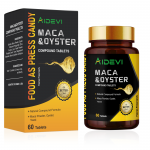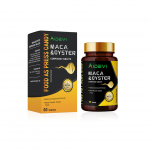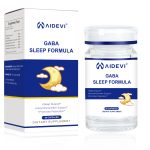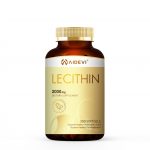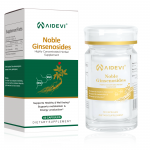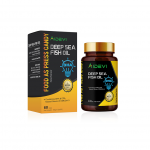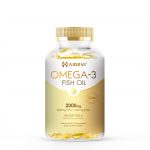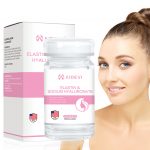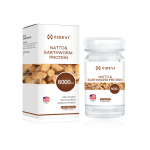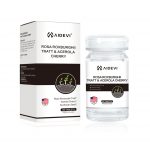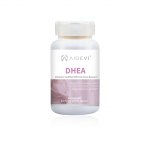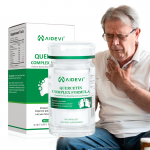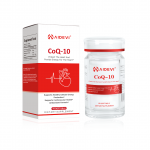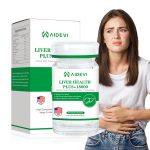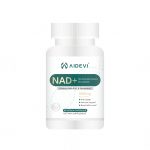Nourishing Your Body with 5 Vital Nutrients After 60
As we hit our 40s, our bodies inevitably start showing signs of aging, with various physiological functions on the decline. Aging is a one-way street, an inescapable journey, but we do have some say in the pace. By maintaining a well-balanced diet and cultivating healthy lifestyle habits, we can stave off diseases, slow down aging, and ultimately improve our quality of life.
Many people tend to think that once you reach 60, old age has arrived. Aging is a natural process, a lengthy and irreversible biological degradation. It's not caused by any single factor but rather by the combined effects of many, including genetics, personal dietary and lifestyle choices, environmental factors, psychological elements, natural influences, and diseases. Of these, diet is the most direct player in the process.
Once middle age sets in, our metabolism gradually slows down. Data shows that the basal metabolic rate of a 60-year-old person is 16% lower than that of a 20-year-old and 25% lower than that of a 70-year-old. Therefore, middle-aged and elderly individuals have some specific nutritional requirements, necessitating some dietary adjustments.
After turning 60, it's vital to consistently include five crucial nutrients in your diet for a healthier aging process.
Water: The Fountain of Senior Health
Water is life's essence, making up over 23% of our bodies. It plays a role in maintaining a clean gastrointestinal tract, improving blood circulation in our internal organs, aiding liver and kidney metabolism, enhancing waste removal, boosting our body's resistance to diseases, and reducing the risk of certain illnesses. It can also slow down the aging process in seniors. Many older individuals tend to overlook the importance of staying well-hydrated, perhaps due to their impatience with the aging process. Neglecting to drink enough water can lead to various health problems, highlighting the significance of addressing hydration issues among seniors.
The optimal way to consume water is to drink clean, preferably boiled, water. In general, adults, regardless of their age, need about 2000 milliliters of water daily, with an emphasis on frequent sips of smaller quantities. Including soups in your diet is recommended. The ideal water temperature is around 30°C since it's gentle on the digestive system and reduces the risk of blood vessel constriction.
Vitamins: Vital for Sustaining Senior Life
Vitamins are organic compounds essential for maintaining overall health, supporting growth, and regulating physiological functions. While vitamins don't contribute directly to tissue formation or provide energy, they help our bodies absorb energy. They serve as the raw materials for essential substances and function similarly to enzymes and hormones.
Nutritional requirements for various vitamins decrease as we age. However, due to poor absorption or increased excretion, seniors often suffer from vitamin deficiencies. Seniors are particularly prone to deficiencies in vitamin A, B, C, and E, which are mainly found in green or yellow vegetables, fresh fruits, whole grains, and plant-based oils.
Vitamin D deficiency is common among seniors and can lead to reduced calcium absorption, contributing to osteoporosis, especially in women aged 50 or older. In addition to calcium supplements, it's essential to get more sunlight to enhance vitamin D production in the body. When seniors need additional vitamin supplements, it's safer to opt for multivitamin supplements. Seniors can consult their healthcare providers to determine the appropriate vitamin intake. The fundamental principle for vitamin intake in seniors is maintaining dietary balance and avoiding excessive consumption.

Minerals: Essential for Senior Health
Although our bodies contain minimal minerals, they're indispensable. Minerals participate in the formation and function of human tissues, serving as the foundation for life processes. Senior diets should include minerals like calcium, iron, zinc, chromium, and iodine.
As we age, gastric acid secretion decreases, often affecting the absorption of iron and calcium. This can lead to conditions like anemia and osteoporosis. Consuming legumes, soy products, milk, and dairy products is recommended. Chromium can help lower cholesterol levels, increase high-density lipoproteins (HDL), and prevent atherosclerosis. Seniors can include more coarse grains, mushrooms, beef, eggs, peanuts, and milk in their diets. Zinc deficiency can cause taste disorders, reduced appetite, and an increased risk of chronic nephritis, arthritis, and myocardial infarction in seniors. To address this, they should focus on foods rich in zinc, such as coarse grains, lean meats, fish, and legumes.
Carbohydrates: The Energy Storehouse
Carbohydrates primarily come from staple foods (e.g., rice, millet, wheat) and vegetables and fruits (e.g., carrots, potatoes, bananas) that people consume daily. Seniors must ensure an adequate daily intake of carbohydrates. However, due to the gradual decline in insulin function that regulates blood sugar in seniors, excessive sugar consumption can elevate blood sugar and lipids. Therefore, experts recommend that seniors acquire sugars by consuming 150-250 grams of staple foods daily, adjusting the quantity according to individual needs. For individuals with good health and high activity levels, increasing sugar intake is acceptable, while diabetics should reduce their sugar consumption.
Proteins: Guardians of Senior Health
Proteins are the building blocks of life, comprising crucial components of human cells, such as skin, hair, muscles, bones, organs, the brain, nerves, and blood. Proteins are essential for all aspects of life, including growth, development, physical activity, genetics, and reproduction. As age increases, the breakdown of proteins in the body accelerates, while synthesis decreases. Therefore, seniors should consume protein-rich foods to maintain normal metabolism, enhance disease resistance, and sustain a healthy body. Seniors should consider increasing their intake of meat, poultry, eggs, fish, dairy products, legumes, soy products, nuts, and seeds. These foods contain amino acids that are similar to those in the human body and are easily digested and absorbed. They are excellent sources of protein in senior diets.
By recognizing the importance of these five essential nutrients and incorporating them into their diets, seniors can significantly impact their health and enhance their overall quality of life as they age.





